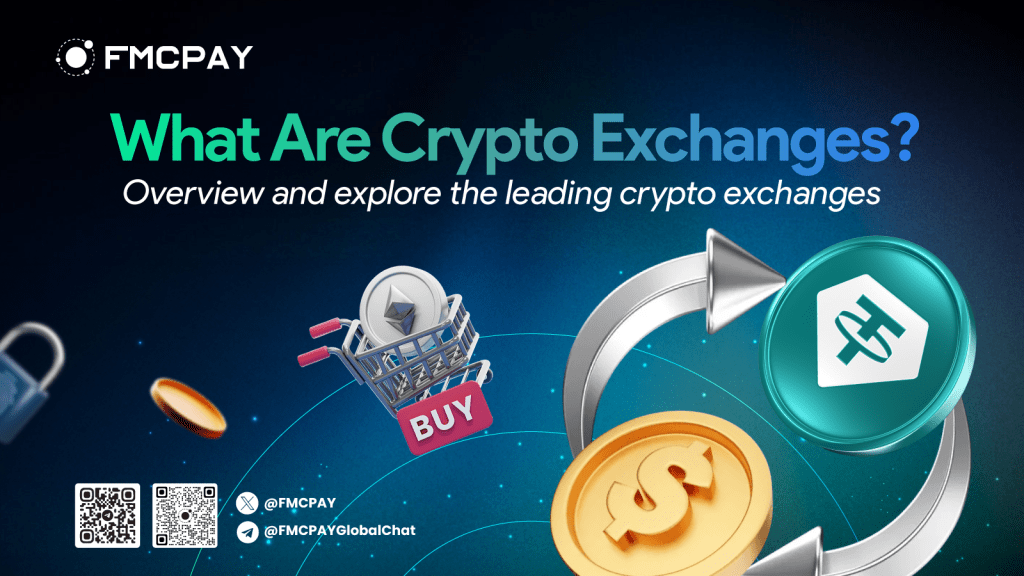The recent resurgence of Bitcoin is bringing the cryptocurrency ecosystem to the forefront. So how to trade crypto? FMCPAY will explain what are crypto exchanges and introduce the current leading exchanges.
What Are Crypto Exchanges?
Crypto exchanges are digital market platforms that allow users to buy and sell cryptocurrencies. Cryptocurrency exchanges can also facilitate the trading of other digital assets, such as non-fungible tokens (NFTs).
Cryptocurrency exchanges operate similarly to traditional stock exchanges, but a crucial difference is:
– No physical presence: Cryptocurrency exchanges—unlike the New York Stock Exchange or the Chicago Mercantile Exchange—are entirely digital markets.
– Mostly not regulated by the SEC: Cryptocurrency exchanges, even major ones, are mostly not regulated by the U.S. Securities and Exchange Commission (SEC). Cryptocurrency exchanges in the U.S. must comply with the Bank Secrecy Act, including requirements for registration, reporting, and customer data collection.
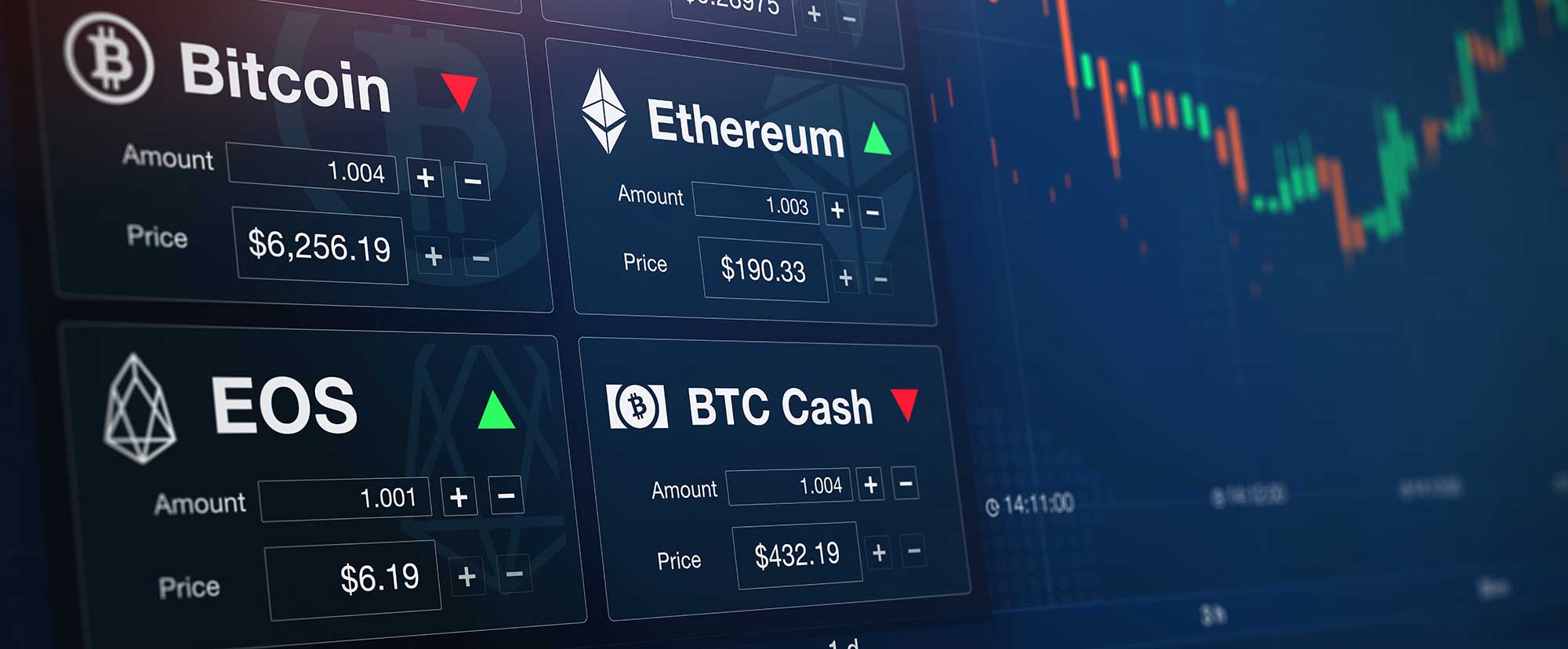
Types of Cryptocurrency Exchanges
Centralized Exchanges (CEX)
Centralized exchanges operate similarly to traditional brokerage firms or stock markets. The exchange is owned and operated by a centralized entity that maintains complete control over all accounts and transactions on the platform. All transactions on centralized exchanges must be approved by the exchange, requiring users to trust the exchange’s operator.
However, these exchanges do not display data on the blockchain, and once transactions move to a CEX, the information is not recorded.
Advantages:
– Liquidity: Centralized exchanges are known to have higher liquidity than other types of exchanges.
– Recoverable: Most centralized exchanges offer the benefit of verifying user identity and recovering access to their digital assets in case of loss or misplaced login information.
– Speed: Centralized exchanges process transactions faster compared to other types of exchanges, with an average speed of 10 milliseconds, according to bitcoin.com.
Disadvantages:
– Honeypot for hackers: Centralized exchanges are attractive targets for hackers due to handling billions of transactions daily and storing valuable user data on centralized servers.
– Manipulation: Some centralized exchanges have faced allegations of manipulating trading volume, engaging in wash trading, and conducting other price manipulation behaviors.
Decentralized Exchanges (DEX)
Unlike centralized exchanges, decentralized exchanges (DEX) operate as decentralized autonomous applications running on public distributed ledger infrastructure. They allow participants to trade cryptocurrencies without the need for a central authority.
Decentralized exchanges are generally more private and do not have the same identity verification (Know Your Customer, KYC) requirements as centralized exchanges. Users can have greater confidence in the preservation of their privacy.
Advantages:
– Ownership: Users have control over their private keys and digital assets since no one, except the users, has access to that information.
– Security and privacy: Decentralized exchanges prioritize user privacy and employ distributed storage services and other security measures to minimize the risk of attacks.
Disadvantages:
– Low liquidity: Even leading decentralized exchanges struggle with liquidity for certain digital assets, making market manipulation easier.
– Blockchain interaction: Trading or swapping two digital assets existing on the same decentralized ledger is relatively straightforward using DEX; however, exchanging two digital assets on different distributed ledgers can be extremely challenging.
Hybrid Exchanges
A hybrid exchange combines the strengths of both centralized and decentralized exchanges. It facilitates convenient centralized order matching and storage of decentralized tokens, meaning the exchange cannot control user assets, and there is no way to prevent someone from withdrawing funds. Simultaneously, the centralized database quickly manages order information and matched transactions instead of using potentially slower blockchain infrastructure. A typical example of a hybrid exchange is OKX.
Advantages:
– Closed ecosystem: Hybrid exchanges can operate in a closed ecosystem, offering organizations peace of mind about the privacy of information while leveraging blockchain technology.
– Privacy: Private blockchains are primarily used for privacy-related use cases to trade off communication with the public. Hybrid exchanges can protect the company’s privacy while allowing communication with shareholders.
Disadvantages:
– Low volume: Hybrid exchanges are relatively new and do not yet have the necessary volume to become a platform for buying and selling digital assets, making them easy targets for price manipulation.
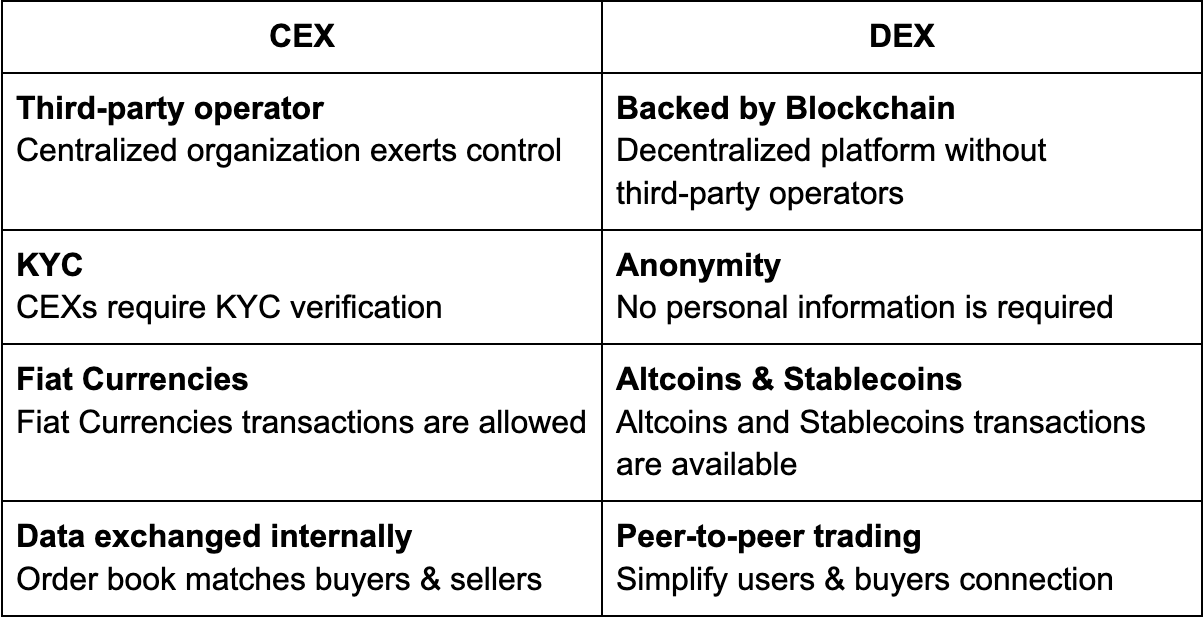
How Do Crypto Exchanges Work?
Whether centralized or decentralized, Crypto Exchanges are a relatively new concept. They function by providing a connection between buyers and sellers. When you set up an account with any cryptocurrency exchange, it allows you to buy and sell various cryptocurrencies like Bitcoin (BTC), Ethereum (ETH), Litecoin (LTC), Cardano (ADA), or Dogecoin (DOGE), etc.
So, if anyone wants to trade on cryptocurrency exchanges in India, for example, they first need to register and complete the Know Your Customer (KYC) process. Once a user’s account is open and verified, they can transfer funds in the form of legal tender or digital currency on the platform, which can be used to make purchases.
On Centralized Exchanges (CEX)
If, for example, you want to buy your first cryptocurrency through a cryptocurrency exchange, here are the basic steps:
- Explore and choose a reliable and suitable cryptocurrency exchange based on your needs.
- Register KYC with the exchange and open an account with them.
- Deposit funds into your account or cryptocurrency wallet by sending legal tender or digital currency. Alternatively, you can engage in peer-to-peer (P2P) transactions between users, with the exchange acting as an intermediary for security.
- Now, choose the type of cryptocurrency you want to buy, select a trading pair, and specify the quantity. For example, if you want to buy 1 Bitcoin worth $40k, you can choose the BTC/USDT pair or check the conversion rate in the BTC/ETH pair.
- Follow the necessary steps to initiate and complete the transaction.
- Check your account to confirm the successful transaction.
On Decentralized Exchanges (DEX)
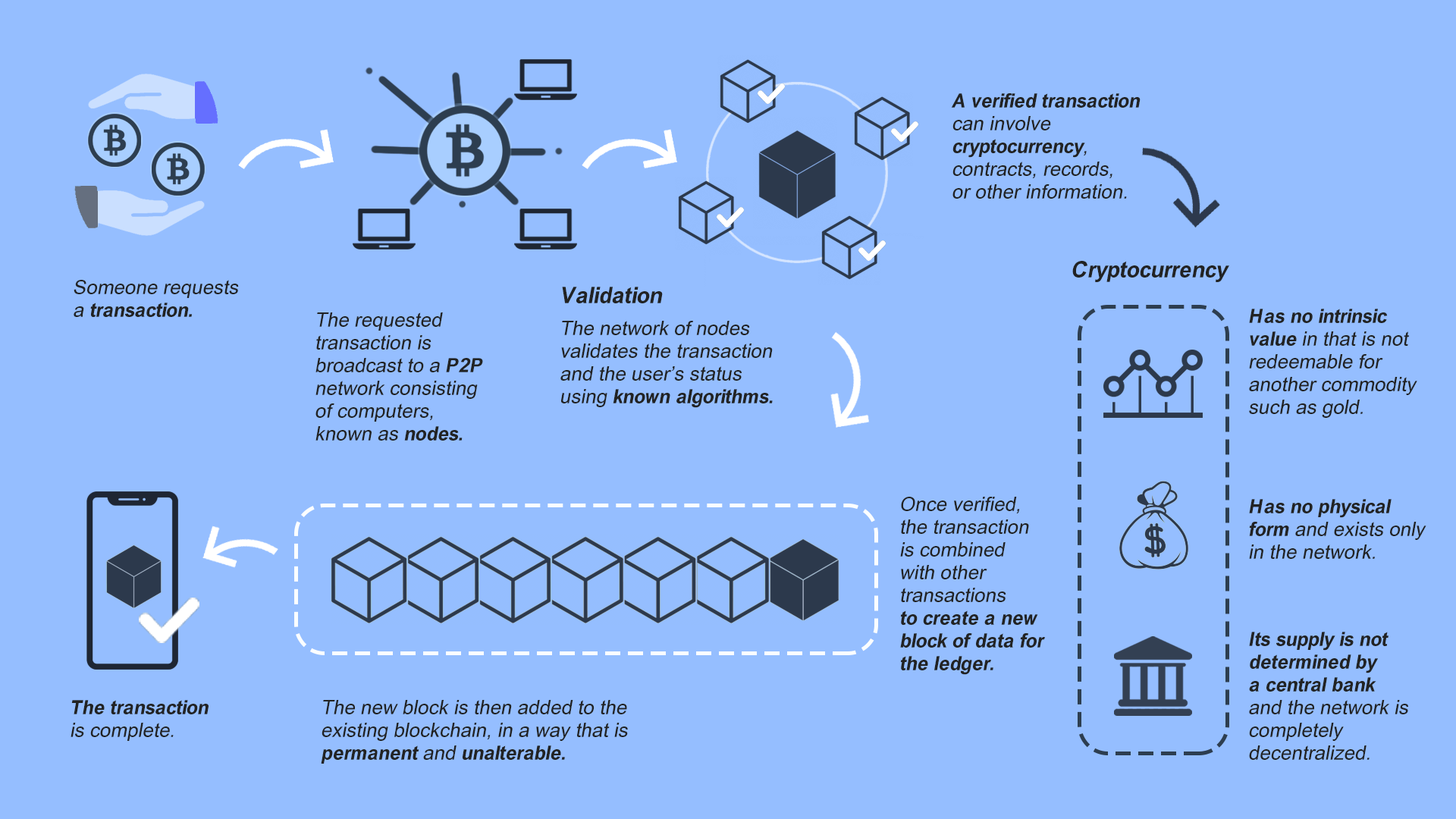
Top Leading Crypto Exchanges
Binance
Binance, founded by Changpeng Zao, a developer with experience building trading systems used at the Tokyo Stock Exchange, primarily organizes cryptocurrency-to-cryptocurrency trades, meaning users can only purchase a limited amount of cryptocurrency with fiat currency. Currently, Binance dominates the exchange space with over $72.63 billion in daily cryptocurrency trading volume.
The exchange has a separate branch for U.S. customers, called Binance US, allowing U.S. citizens to trade approved cryptocurrencies. Binance also has its native token, $BNB, used for transactions on the platform, significantly reducing transaction fees.
- Binance Fee: Binance charges maker and taker fees ranging from 0.015% to 0.75%, and the trading fee is 0.1%.
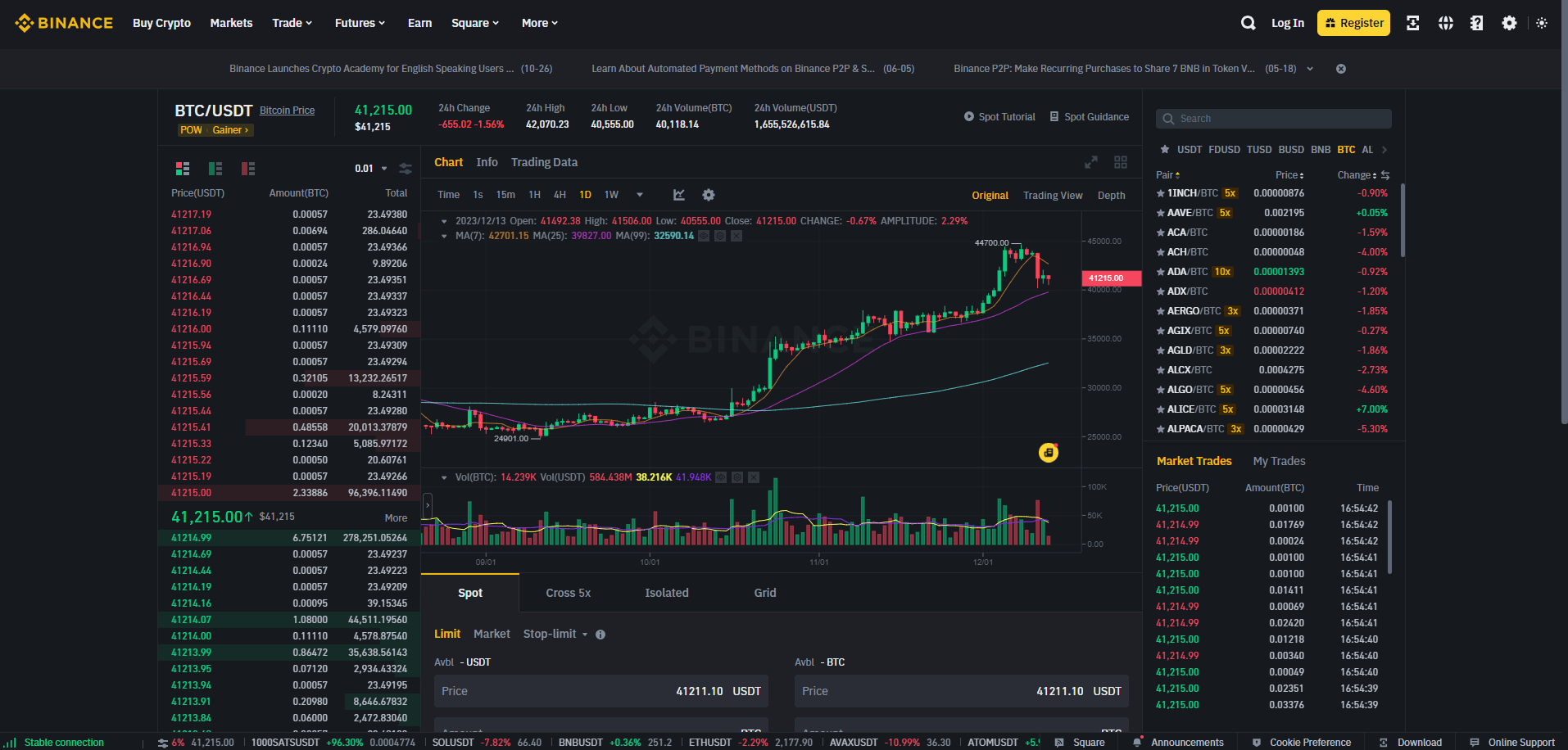
Coinbase
Coinbase is one of the most popular and widely used exchanges in the United States. It is a fully regulated and licensed crypto exchange that operates in over 100+ countries. Coinbase offers a user-friendly interface, making it accessible for both beginners and professionals.
While the crypto industry has seen fraudulent exchanges and Ponzi schemes, Coinbase has managed to avoid controversy. The platform also provides insured custodial wallets to safeguard traders’ and investors’ investments.
- Coinbase Fee: Between $0.99 to $2.99.
- Coinbase Pro Fee: It uses a maker-taker fee model. For makers, the fee is between 0.00% to 0.50%, and for takers, the fee ranges from 0.04% to 0.50% of the order.
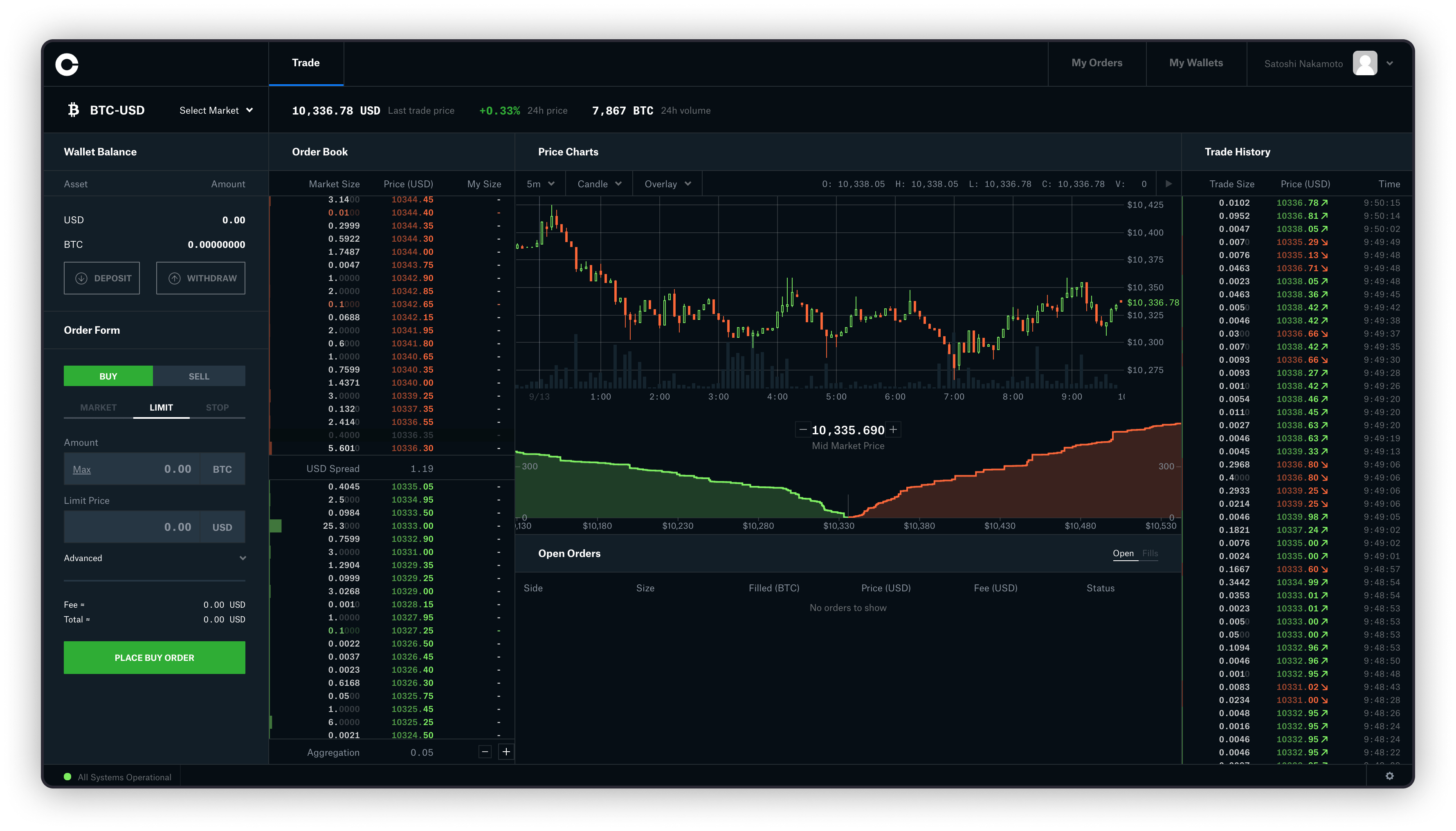
OKEx
OKEx is a Malta-based crypto brokerage and trading platform that allows users to buy and sell cryptocurrencies. It offers multiple cryptocurrencies for trading across different spot and derivative markets. The exchange also provides crypto lending, borrowing, staking services, and mining pools.
OKEx supports major countries with some exceptions, including Hong Kong, the USA, Malaysia, and ten other countries. OKEx also operates a Customer-to-Customer (C2C) trading system to enable users to trade directly with each other.
- OKEx Fee: OKEx uses a maker-taker fee model, classified into VIP and Regular users.
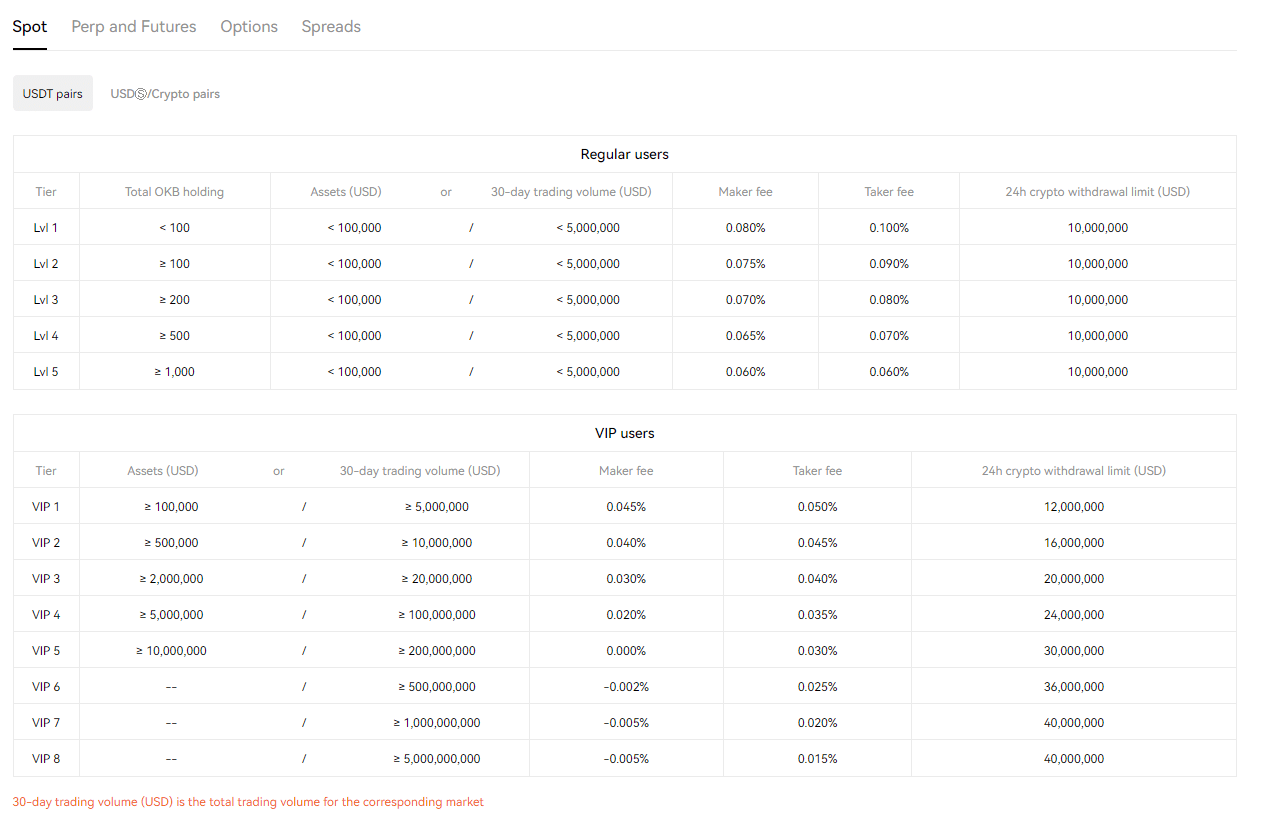
FMCPAY
FMCPAY is one of the most trusted platforms for trading cryptocurrencies and digital securities in the world. FMCPAY is a cryptocurrency exchange based in the United States with more than 1,000,000 KYC user!
Feature Rollout:
At present, FMCPAY is providing the following features:
– Spot trading
– P2P
– Margin trading
– Staking
– Tokenized Stocks (Coming soon)
As FMCPAY’s user base grows, many new features will be added in the future.
Matching Engine:
FMCPAY’s order matching mechanism allows processing and maintaining up to 1,000,000 transactions per second, minimizing order congestion and help users trade conveniently.
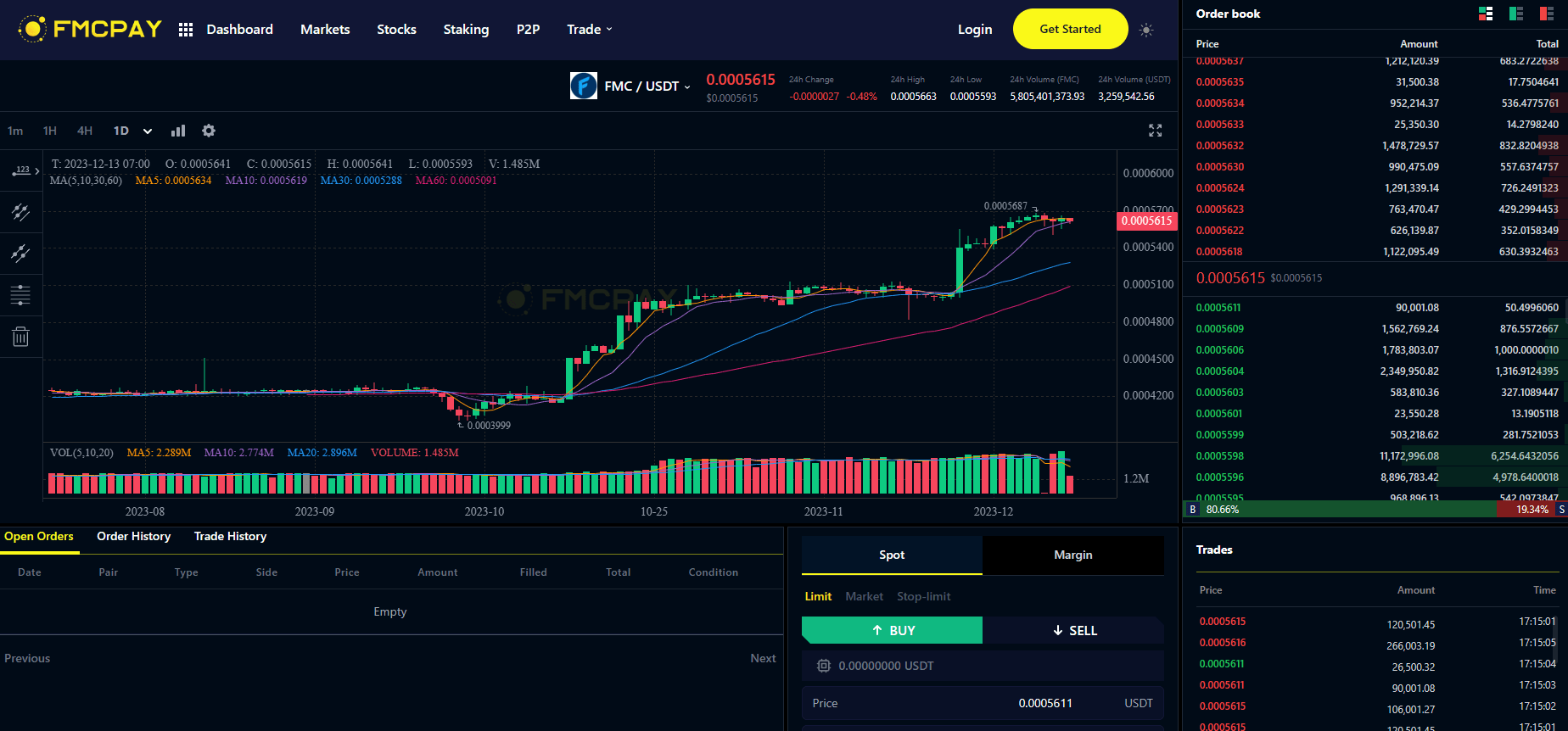
Conclusion
The easiest and least cumbersome way to buy and sell cryptocurrencies is through crypto exchanges. However, with over 200 exchanges operating globally, choosing the best exchange for your needs can be challenging.
When deciding on which cryptocurrency exchange to choose, remember all the points mentioned, such as its type, trading pairs, fee structure, location, and other principles, before starting to make transactions.
Explore other insight articles at: FMCPAY insights
FAQs:
How many crypto exchanges are there?
There are close to 600 cryptocurrency exchanges across the globe, extending invitations to investors interested in trading Bitcoin, Ethereum, and other digital assets. However, there is a wide range of variations in terms of costs, quality, and safety among these platforms.
What is the difference between crypto exchange and blockchain?
Blockchain is a storage technology employed to store data on decentralized networks. Cryptocurrency serves as a medium of exchange, similar to the US dollar. While a blockchain is capable of storing various types of information beyond cryptocurrency transaction records, it’s important to note that all cryptocurrencies possess a monetary value.
FMCPAY RESEARCH (VINCΞ)

